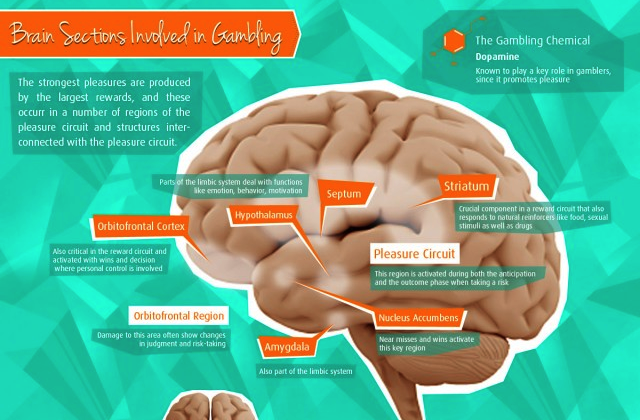The psychology of gambling unveils a compelling narrative about human behavior and decision-making processes. People flock to casinos and online platforms, drawn not just by the thrill of winning but also by complex cognitive biases in gambling. These biases, combined with emotional factors, shape their choices and often lead to gambling addiction, affecting millions worldwide. Understanding the social influences gambling has on individuals is crucial, as peer pressure and community norms can either promote responsible gambling practices or exacerbate unhealthy behaviors. As we delve deeper into this topic, we will explore the interplay of these psychological elements, uncovering why the lure of gambling captivates so many.
Exploring the mental processes behind betting, the allure of chance-taking, and the risks involved can provide valuable insights into the gambling phenomenon. Terms like wagering behavior, gaming psychology, and betting motivation reflect a spectrum of factors influencing why individuals engage with games of chance. The intricate relationship between cognitive distortions and emotional triggers often results in compulsive gambling patterns, creating a cycle that is hard to break. Recognizing how social dynamics and cultural attitudes affect gambling participation is essential for fostering awareness and encouraging healthier gambling choices. By analyzing these themes, we gain a clearer understanding of the underlying motivations that keep players returning to the tables.
Exploring the Cognitive Biases in Gambling Behavior
Cognitive biases play a critical role in shaping the choices that gamblers make, often leading them to engage in risky behaviors they might otherwise avoid. One prevalent bias is the illusion of control, where gamblers believe they can influence the outcomes of games based on their skills or strategies. This misconception can provoke reckless betting habits, as players may reject statistical realities in favor of their false confidence. The tendency to misinterpret probabilities fundamentally alters a gambler’s relationship with risk, making it easier to justify continued play, even in the face of mounting losses.
Moreover, the overconfidence effect often leads gamblers to take on more significant risks based on past successes that may not accurately predict future outcomes. For instance, a player who wins a jackpot might believe this luck will continue, ignoring the house edge that favors the casino. Addressing these cognitive distortions through therapies, such as Cognitive Behavioral Therapy (CBT), can significantly help individuals re-evaluate their perceptions of chance and reduce impulsivity, steering them toward more responsible gambling choices.
The Emotional Factors Influencing Gambling Decisions
Emotions are a potent catalyst in the decision-making processes of gamblers. Many individuals turn to gambling as an escape, using it to cope with feelings of inadequacy, stress, or anxiety. The rush of excitement and potential rewards can create a temporary reprieve from these negative emotions, reinforcing a cycle where gambling becomes a go-to outlet. However, the emotional highs can quickly devolve into lows, leading to deeper dependencies and potentially destructive behaviors. Awareness of this emotional connection is essential for fostering healthier coping mechanisms.
Understanding how strong emotions drive gambling habits also underscores the importance of developing emotional resilience. Individuals at risk of developing gambling addiction might benefit from support systems that teach better emotional management techniques. Encouraging strategies such as mindfulness and stress reduction can help reduce the impulse to gamble as a primary coping mechanism. By promoting these healthy emotional outlets, we empower individuals to manage their emotional landscapes without relying on gambling, thus supporting a shift towards responsible gambling practices.
Frequently Asked Questions
What role do cognitive biases play in the psychology of gambling?
Cognitive biases significantly influence the psychology of gambling by skewing a gambler’s perception of risk and luck. Common biases include the belief that one is luckier than average or the reliance on ‘lucky’ numbers, which can lead to persistent gambling habits. Understanding and addressing these biases through approaches such as Cognitive Behavioral Therapy (CBT) can help reshape decision-making processes, enabling gamblers to make healthier choices.
How do emotional factors impact gambling addiction?
Emotional factors play a crucial role in the psychology of gambling, often driving individuals to gamble as a coping mechanism for stress or anxiety. Strong emotional states can lead to impulsive gambling decisions, resulting in significant financial losses. Recognizing these emotional connections is essential for developing healthier coping strategies and fostering resilience, ultimately contributing to responsible gambling practices.
| Key Points | Description |
|---|---|
| The Brain and Gambling Addiction | Gambling activates brain pathways similar to those affected by drugs, with dopamine reinforcing the behavior and potentially leading to addiction. |
| The Impact of Near Misses | Near misses create an illusion of control, intensifying the urge to gamble even amidst losses. |
| Cognitive Biases Affecting Gambler’s Choices | Gamblers often believe they have ‘lucky’ numbers, skewing their perception of risk and chance, which can reinforce unhealthy habits. |
| Emotional Factors Driving Gambling Behavior | Stress and anxiety can trigger impulsive gambling, highlighting the need for healthier coping strategies. |
| The Influence of Social Surroundings | Social factors and peer influences can significantly impact gambling behavior, with community support being vital for prevention. |
| Regulatory Implications and Promotion of Responsible Gambling | Understanding gambling psychology informs policies like loss limits and time-outs to promote responsible gambling. |
Summary
The psychology of gambling delves into the intricate relationships between neurological impulses, cognitive biases, emotional triggers, and social influences that shape gambling behaviors. From understanding how dopamine fuels addiction to recognizing the impact of social circles on gambling habits, the depth of this subject unveils numerous factors that compel individuals to engage in this risky behavior. As we continue to explore the psychology of gambling, it becomes clear that addressing these issues through effective strategies can lead not only to healthier gambling practices but also to greater awareness and prevention of gambling addiction.
